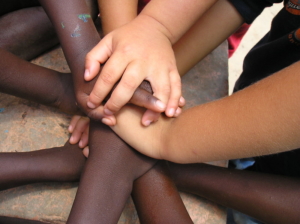Human Trafficking in Angola
 Angola is a country of origin and destination for men, women and children who are victims of trafficking, for the purpose of forced prostitution and forced labor. Domestically, victims of trafficking end up working in agriculture, construction, households and artisanal diamond mines. Women and children are often victims of human trafficking in Angola, with many women coming from Vietnam, the Democratic Republic of Congo (DRC) and Namibia, and traffickers sending many Angolan women and children to Namibia, South Africa and some European countries like Portugal. Since traffickers often lure victims with the promise of employment and a better life, Angola can implement several measures to improve the lives of its citizens. Here is some information about some of the challenges that Angola is facing that may play into the prevalence of human trafficking in Angola.
Angola is a country of origin and destination for men, women and children who are victims of trafficking, for the purpose of forced prostitution and forced labor. Domestically, victims of trafficking end up working in agriculture, construction, households and artisanal diamond mines. Women and children are often victims of human trafficking in Angola, with many women coming from Vietnam, the Democratic Republic of Congo (DRC) and Namibia, and traffickers sending many Angolan women and children to Namibia, South Africa and some European countries like Portugal. Since traffickers often lure victims with the promise of employment and a better life, Angola can implement several measures to improve the lives of its citizens. Here is some information about some of the challenges that Angola is facing that may play into the prevalence of human trafficking in Angola.
The Right to Form Unions
The law indicates that workers, except those that the armed forces or police employ, have the right to form and join independent trade unions. However, an issue is that authorities in Angola do not always enforce its laws adequately. The law states that for a union to form, at least 30% of workers in an industry or province must go through a registration process and receive approval from the authorities. The law also provides for the right to collective bargaining but excludes public sector workers. However, the country has prohibited strikes by members of the armed forces, police, prosecutors and judges, prison staff, firefighters, public sector workers and oil workers.
Employment
The Angolan government enforced the Minimum Wage Act in the formal labor sector. In 2019, the national minimum wage was Kwanzas 16,503 ($52.60 USD) and the aim was for it to reach Kwanzas 21,454 ($68.30 USD) for the agricultural sector, Kwanzas 26,817 ($85.50 USD) for the trade and manufacturing sector and Kwanzas 32,181 ($102.50 USD) for the extractive industries sector. Furthermore, while the law guarantees a safe working environment for all sectors of the economy, labor protection standards do not protect most workers in the informal sector.
Discrimination and Working Labor
The Constitution and the law prohibit discrimination in employment based on race, sex, religion, disability or language, and the government has generally enforced these laws effectively in the formal sector. The law provides for equal pay for equal work, and women often hold at least some high-level positions in state industry and the private sector. However, many women tend to hold low-level positions, especially in the informal sector. The law prohibits all forms of forced or compulsory labor too.
The government reportedly does not enforce this law effectively, partly because there are not enough labor inspectors. Penalties are reportedly inadequate to deter violations. Children under 14 are prohibited from working too. To obtain a work contract, children must prove that they are at least 14 years old and that the work does not interfere with their formal education or cause them physical or mental harm. Between the ages of 14 and 16, parental consent to work is necessary. Tuition is free and compulsory for children up to sixth grade.
NGOs and Immigration Policies
There are several hundred non-governmental organizations (NGOs) working for transparency, human rights and political reform regarding human trafficking in Angola. Organizations critical of the government are often subject to state interference and can experience the threat of legal action or closure. In 2017, the Constitutional Court ruled that a 2015 decree requiring NGOs to register with the government and subjecting NGOs receiving donations to further scrutiny was no longer constitutional due to criticism from civil society. This criticism openly described the decree as restrictive and intrusive, as it required NGOs to obtain government approval before engaging in activities and allowed the government to monitor the organizations.
One of the best-known NGOs in Angola that is working on human rights is Missio, which has the main objective to support the Catholic Church in missionary dioceses around the world. The organization changes lives by listening to local needs and aiding in the creation of infrastructure, such as chapels, schools, orphanages, clinics and dispensaries and centers where young church members can thrive and grow. All this support is most tangible in the funds that it collects and distributes, but even more tangible in the spiritual and pastoral unity it creates. Therefore, the organization has two main areas of activity: mission animation and education and fundraising. It was registered in April 1996 and has raised more than £7 million to date and may have an impact on reducing human trafficking in Angola.
Several obstacles exist that prevent refugees and migrants from finding employment. Regulation 273/13 prevents refugees from obtaining a compulsory business license, which is necessary to own and operate a business. Refugees have also reported that they often have difficulty working in the formal sector because they cannot obtain legal documents. The government is making significant efforts to combat human trafficking in Angola. It has educated the public about the dangers of trafficking, amended the constitution to explicitly prohibit trafficking and maintained anti-trafficking funding despite a significant decline in government revenue and subsequent cuts to the national budget.
– Manos S. Karousos
Photo: Flickr
